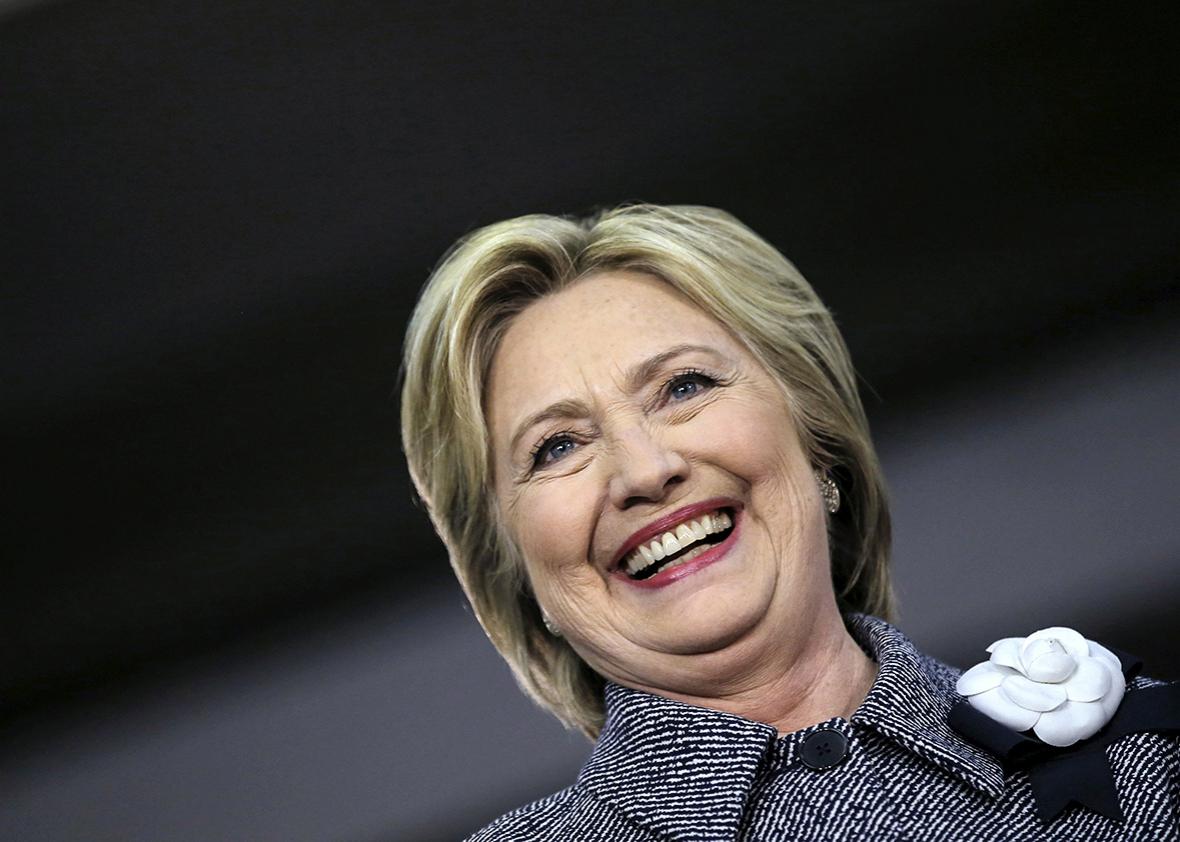The first Super Tuesday wasn’t quite as super as Hillary Clinton hoped, but the sequel couldn’t have turned out much better for the former secretary of state. Clinton won at least four the night’s five contests—notching big wins in Florida, North Carolina, and Ohio, and a smaller one in Illinois. (The only possible blemish on an otherwise perfect night for her was Missouri, where the race remained too close to call with more than 97 percent of precincts reporting.) Hillary came into the night as the dinged-up cautious favorite; she’ll leave it as the presumptive nominee.
That’s not to discount what Bernie Sanders has accomplished in his campaign. He proved a far greater challenge to Clinton than anyone expected when he jumped into the race last year, back when the progressive wing of the Democratic Party was still pining for Elizabeth Warren and the rest of the anybody-but-Clinton crowd was hoping Joe Biden would run. Bernie pulled Hillary to the left throughout the race—at one point he had the Democratic field debating the merits of capitalism on a debate stage in Las Vegas!—while also proving that it’s possible to run a competitive national campaign without the help of super PACs. He has the money and motivation to press on, and he very may well. None of that, though, changes the cold, hard math that says this race is effectively over.
Based on the latest Associated Press estimates—which don’t yet include the results in Missouri and Illinois—Clinton now has 1,488 delegates to her name, nearly two-thirds of the number she needs to win the nomination and more than double Sanders’ 704. Yes, nearly a third of Hillary’s total are superdelegates, who could, theoretically, change their mind—but given her massive lead and their general front-loving nature, it’s hard to imagine them finding a reason to switch teams now. And given that they are, by definition, part of the Democratic establishment, they won’t be looking for one either.
While Bernie has pulled out victories in somewhat unexpected places—like Oklahoma and Michigan—his modest margins in most of the states he’s won were no match for Clinton’s dominating performance, particularly among black voters, in the South. Even in New Hampshire, where he won by a historic margin, Sanders captured only six more delegates than Clinton did. Hillary, meanwhile, netted roughly 70 delegates in Texas and Florida, and another 40 in Georgia.
Add it all up and Clinton now needs to win only about a third of the outstanding delegates to secure the majority she’ll ultimately need at this summer’s convention—an incredibly low bar for any candidate, let alone one with Clinton’s built-in advantages. The next several weeks of the primary calendar could give Bernie a chance to post a few more wins of his own, but, unlike their GOP counterparts, Democrats don’t hold winner-take-all contests. Barring a truly catastrophic collapse from the front-runner, Hillary will be standing on a stage in Philadelphia when the balloons come down this summer. There’s no longer anything Bernie can realistically do to stop her.
Read more of Slate’s coverage of the Democratic primary.
